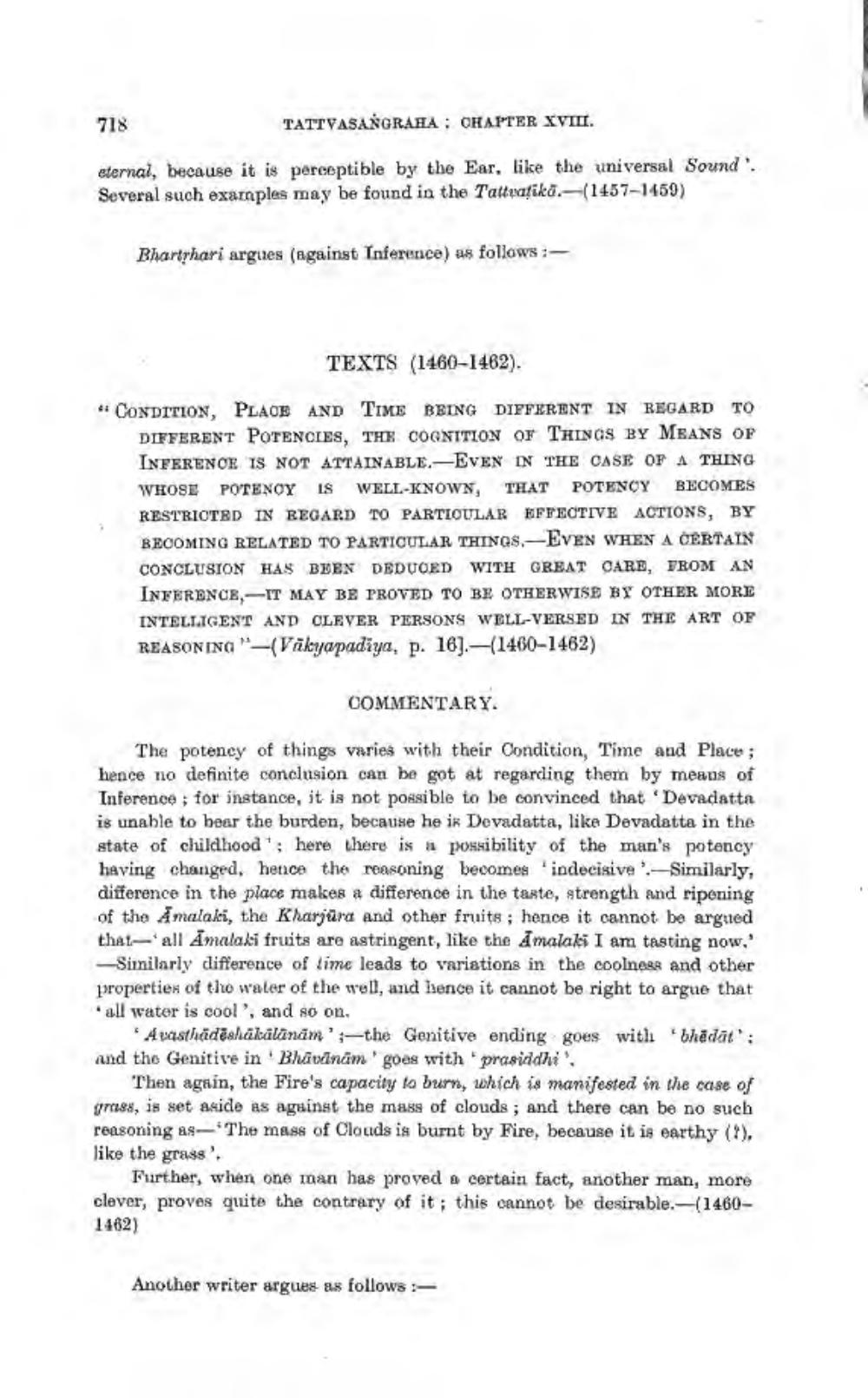________________
718
TATTVASANGRAHA : CHAPTER XVIII.
eternal, because it is perceptible by the Ear, like the universal Sound'. Several such examples may be found in the Tattuaţika.-(1457-1459)
Bhartyhari argues (against Inference) as follows:
TEXTS (1460-1462).
** CONDITION, PLACE AND TIME BEING DIFFERENT IN REGARD TO
DIFFERENT POTENCIES, THE COGNITION OF THINGS BY MEANS OF INFERENCE IS NOT ATTAINABLE-EVEN IN THE CASE OF A THING WHOSE POTENOY IS WELL-KNOWN, THAT POTENOY BECOMES RESTRICTED IN REGARD TO PARTIOULAR EFFECTIVE ACTIONS, BY BECOMING RELATED TO PARTICULAR THINGS-EVEN WHEN A CERTAIN CONCLUSION HAS BEEN DEDUCED WITH GREAT CARE, FROM AN INFERENCE, IT MAY BE PROVED TO BE OTHERWISE BY OTHER MORI INTELLIGENT AND CLEVER PERSONS WELL-VERSED IN THE ART OF REASONING "-(Vākyapadiya, p. 16).—(1460-1462)
COMMENTARY
The potency of things varies with their Condition, Time and Place; hence no definite conclusion can be got at regarding them by means of Inference ; for instance, it is not possible to be convinced that 'Devadatta is unable to bear the burden, because he is Devadatta, like Devadatta in the state of childhood : here there is a possibility of the man's potency having changed, hence the reasoning becomes 'indecisive - Similarly, difference in the place makes a difference in the taste, strength and ripening of the Amalaki, the Kharjüra and other fruits ; hence it cannot be argued that all Amalaki fruits are astringent, like the Amalaki I am tasting now,' -Similarly difference of lime leads to variations in the coolness and other properties of the water of the well, and hence it cannot be right to argue that all water is cool', and so on.
Avasthädēshākälānăm':-the Genitive ending goes with bhēdāt': and the Genitive in Bhavnām 'goes with prasiddhi
Then again, the Fire's capacity to burn, which is manifested in the case of graiss, is set aside as against the mass of clouds; and there can be no such reasoning as- The mass of Clouds is burnt by Fire, because it is earthy (+). like the grass'.
Further, when one man has proved a certain fact, another man, more clever, proves quite the contrary of it; this cannot be desirable.-(14601462)
Another writer argues as follows:




